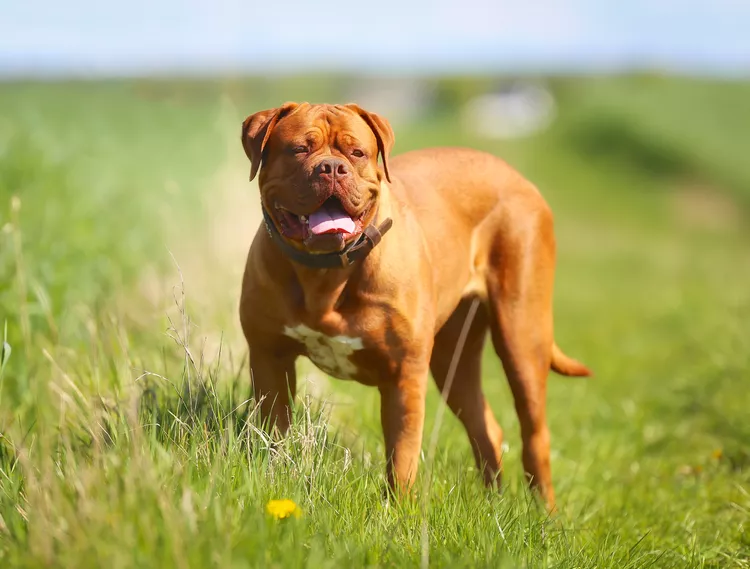
Acetaminophen, or Tylenol, is a common over-the-counter medication used by humans to relieve pain and fever. You may be tempted to give your dog acetaminophen for pain since it's available over the counter. However, this drug can be toxic to dogs.
You should never give your dog acetaminophen. If you suspect your dog needs pain relief or has a fever, seek veterinary care for your dog.
Acetaminophen is a nonprescription medication that relieves mild to moderate pain and reduces fever. It is an anti-inflammatory that also has analgesic properties to reduce pain and lower fevers. The drug has been a popular, effective pain reliever and fever reducer for human use since the 1950s.
Acetaminophen is not available in veterinary preparations and is not a recommended form of pain relief in dogs.
Acetaminophen can be highly toxic to dogs.
If your dog is in pain, your vet will prescribe a more effective, safer drug than acetaminophen. There are many veterinary pain medications to choose from that can help your pet depending on its specific needs. It is important to get your dog to the vet right away if it is in pain as this can be a symptom of many problems, and a pain reliever may mask these signs without helping to treat the underlying condition.
Never give ibuprofen (Advil) or naproxen (Aleve) to dogs as these are highly toxic. Always consult with your vet before giving your dog any medication, supplement, or herbal remedy.
There may be rare cases where your veterinarian recommends giving a pain reliever containing a low dose of acetaminophen to your dog. This is only done in very unique cases and is based on the specific health and condition of your dog. If so, you must follow your vet's recommendation for dosage and administration.
Acetaminophen is never safe for cats and is highly toxic to them.
Dogs receiving safe, low doses of acetaminophen may still experience adverse effects, such as gastrointestinal upset, liver and/or kidney issues, blood-related problems, or dry eye. The risk of potentially serious side effects makes it a poor choice for pain management in dogs, especially because there are many safe medications that can be used instead.
Acetaminophen is generally considered toxic to dogs at doses above 30 to 50 milligrams per kilogram (13 to 22 milligrams per pound). However, some dogs are more sensitive and will experience toxic effects at lower doses. In addition, frequent ingestion of acetaminophen may make dogs more susceptible to toxicity.
Acetaminophen toxicity causes damage to the liver and red blood cells. It may damage the kidneys as well. This damage creates many serious complications in the body and may lead to death.
Signs of acetaminophen toxicity typically appear around one to four hours after ingestion and tend to get gradually worse if untreated.
If you know that your dog ingested a toxic amount of acetaminophen, then you should contact your veterinarian immediately. Your vet may recommend that you induce vomiting at home or bring your dog in for them to induce vomiting under veterinary supervision. Don't try to induce vomiting at home unless your veterinarian recommends it and provides detailed instructions.
If it's been 30 minutes or more since your dog ate acetaminophen, then vomiting is unlikely to be enough. Your dog will need veterinary treatment for acetaminophen toxicity. The vet may need to give your dog activated charcoal to try to decontaminate toxins from the GI tract. A drug called N-acetylcysteine is another common treatment used to protect red blood cells and the liver from further injury. Intravenous fluids and additional medications may be necessary for supportive care. In serious cases, your vet may recommend a referral to a veterinary specialty center for more intensive care.
The prognosis of acetaminophen toxicity in dogs varies from case to case and depends on the amount of drug ingested and any underlying conditions the dog may have. As is the case with most toxins, the sooner the dog is treated, the better the chance of recovery. The best way to prevent accidental ingestion is to keep medications safely locked up and out of reach.

75 Unisex Cat Names
Our gender neutral cat names perfect for your feline friend, with a diverse selection of fun and inclusive options to fit your pet's disposition.
Why Does My Cat Stink?
Is your cat stinky? Find out about the causes of bad odors in cats and when it is something to be concerned about. Learn how to help your stinky cat.
Signs of Rabies in Cats
Rabies is a fatal and contagious virus that can affect cats. Learn about the signs of rabies in cats and what to do about them.
Can Cats Eat Dog Food?
Can cats eat dog food? In small amounts, it's unlikely to be a problem, but long-term feeding of dog food to cats can cause health issues and malnutrition.
Exploring the Different Types of Pet-Friendly Beaches
Are you looking for pet-friendly beaches? Learn about the different types of pet-friendly beaches, their locations, and tips for visiting them with your pet.
Pulled Muscles in Dogs
A pulled muscle is one of the most common injuries seen in dogs. What can you do if your dog pulls a muscle and how can you prevent it?
Fibrosarcoma in Cats
Fibrosarcomas are potentially fatal soft tissue tumors that can occur in cats. Learn the causes, treatment, and prevention.
Alopecia in Dogs
Alopecia leads to hair loss and bald spots in dogs. Some breeds may be more at risk. Learn common causes, treatment, and prevention of dog alopecia.
Is Acetaminophen Safe for Dogs?
Acetaminophen is used by humans for pain and fever relief, but is it safe for dogs? Here's what you need to know before giving your dog acetaminophen.
Can Dogs Eat Almonds? Understanding the Risks and Guidelines
Can dogs eat almonds? While a couple likely won't hurt, it's best to avoid feeding your dog this nut. Learn the risks here.
Keeshond: Dog Breed Characteristics & Care
Learn about the keeshond dog, also known as the Dutch Barge Dog. This fluffy spitz breed was bred to guard, but also makes a friendly companion.
Is Rosemary Safe for Dogs?
Rosemary is used both for cooking and as a supplement with many reported health benefits in people, so you may be wondering if it is safe to give to your dog. Rosemary is considered non-toxic for dogs but with some caveats.
7 Hybrid Cats Breeds
Hybrid cat breeds can make appealing pets since they look more exotic than domestic house cats, but they aren't for everyone.
The Best White Cat Breeds to Keep as Pets
Several breeds can result in white cats with long or short hair. Find out the pros and cons of these white cat breeds.
11 Cute Pictures of Ragdoll Cats
Ragdoll cats are known for their beautiful coats and bright, blue eyes. Learn all about the breed, and check out some cute pictures here.
7 Reasons Why Your Cat Eats Paper, and How to Stop It
Is your cat eating paper? Learn why your cat is doing this, and find out how to put a stop to it.
Feist: Dog Breed Characteristics & Care
Feists are small, short-haired dogs developed to hunt squirrels and catch vermin. These high-energy, affectionate pooches make great companion animals.
Dogue de Bordeaux (French Mastiff): Dog Breed Characteristics & Care
Learn about the Dogue de Bordeaux, also called the French mastiff. Although large and muscular, they’re known for their calm and gentle personality.
How to Stop Your Dog From Fearing Men
Many dogs have a phobia of men. Learn how to help your dog overcome its fear through desensitization and training while keeping everyone safe.
Why Dogs Eat Poop and How to Stop Them
Is your dog eating poop? Some dogs do this because of stress or illness. Learn how to prevent stool eating, or coprophagia, in dogs.